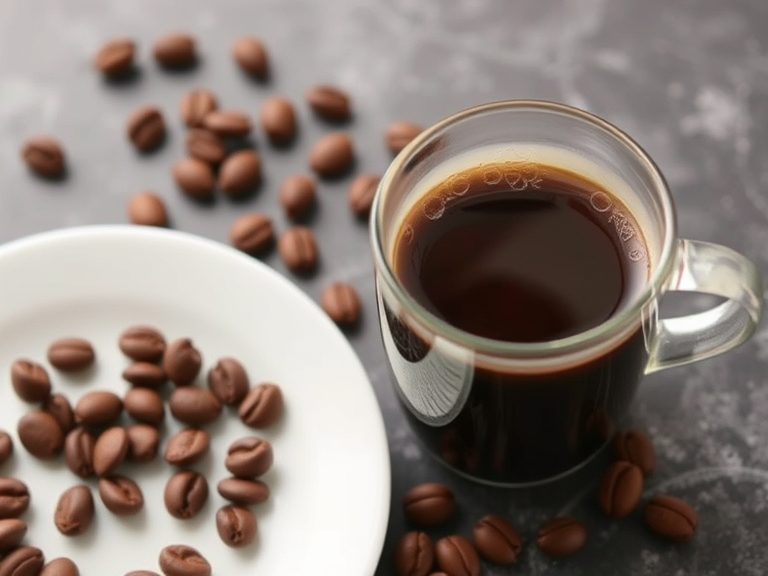Introduction to Sour Coffee: What Makes Your Brew Unpleasant?
Coffee is a beloved morning ritual for millions worldwide, but nothing ruins that first sip quite like an unexpectedly sour taste. Sour coffee can transform your anticipated moment of bliss into a disappointing experience.
Also Read: Understanding and Solving Bitter Brewing Challenges
Understanding why your coffee tastes sour and how to prevent it is crucial for every coffee lover.
The Science Behind Sour Coffee: Root Causes Explained
1. Under-Extraction: The Primary Culprit of Sour Coffee
Under-extraction occurs when coffee grounds don’t release enough flavor compounds during brewing. This happens when water doesn’t interact sufficiently with coffee grounds, resulting in a tangy, acidic taste that overwhelms the rich, balanced flavors coffee enthusiasts crave.
Key Factors Contributing to Under-Extraction:
- The grind size is too coarse
- The water temperature is too low
- Insufficient brewing time
- Inadequate coffee-to-water ratio
2. Brewing Temperature Matters
Water temperature plays a critical role in extracting optimal coffee flavors. When water is too cool, it fails to properly dissolve and extract the complex compounds within coffee grounds. Ideal brewing temperatures range between 195°F to 205°F (90°C to 96°C) for most brewing methods.
3 Proven Ways to Fix Sour Coffee

Method 1: Perfect Your Grind Size
Achieving the right grind size is fundamental to preventing sour coffee. Different brewing methods require specific grind sizes:
- Drip Coffee: Medium grind
- French Press: Coarse grind
- Espresso: Fine grind
- Pour-Over: Medium-fine grind
Method 2: Optimize Water Temperature
Invest in a quality thermometer or electric kettle with temperature control. Consistently maintaining the ideal 195°F to 205°F range ensures proper extraction and eliminates sour notes.
Method 3: Adjust Brewing Time and Technique
Each brewing method has an optimal extraction time:
- Drip Coffee: 4-5 minutes
- French Press: 4 minutes
- Espresso: 25-30 seconds
- Pour-Over: 3-4 minutes
Additional Factors Influencing Coffee Sourness

Coffee Bean Quality and Roast Level
Not all coffee beans are created equal. Lighter roasts tend to have more acidic characteristics, which can contribute to a sour taste if not brewed correctly. Consider:
- Medium to dark roasts for smoother flavor
- Single-origin beans with balanced acidity
- Freshly roasted beans (within 2-4 weeks of roasting)
Water Quality Impact
Water composition significantly affects coffee taste. Recommendations include:
- Using filtered water
- Avoiding distilled or heavily mineralized water
- Maintaining a water hardness between 90-150 parts per million (ppm)
Common Misconceptions About Sour Coffee
Myth: All Acidic Coffees Are Bad
Acidity isn’t inherently negative. High-quality coffees often feature bright, complex acidic notes that enhance the overall flavor profile.
Myth: Expensive Equipment Guarantees Good Coffee
While quality equipment helps, technique and understanding brewing principles matter more.
Frequently Asked Questions
How quickly does coffee go sour after brewing?
Within 30 minutes, brewed coffee oxidizes and loses its optimal flavor.
Can a water filter affect coffee sourness?
Yes, water quality dramatically impacts coffee taste and extraction.
Is your coffee always a brewing problem?
Not always. Sometimes bean quality or roast level contributes to sourness.
How often should I replace coffee beans?
Purchase beans every 2-4 weeks and store them properly to maintain freshness.
Do different brewing methods prevent sourness?
Yes, each method requires specific techniques to avoid under-extraction.
Conclusion
Conquering sour coffee requires patience, practice, and understanding. Focusing on grind size, water temperature, brewing time, and bean quality will transform your coffee experience from disappointing to delightful.
Also Read: Understanding and Solving Bitter Brewing Challenges
Remember, great coffee is both an art and a science. Experiment, learn, and enjoy the journey to your perfect brew.

